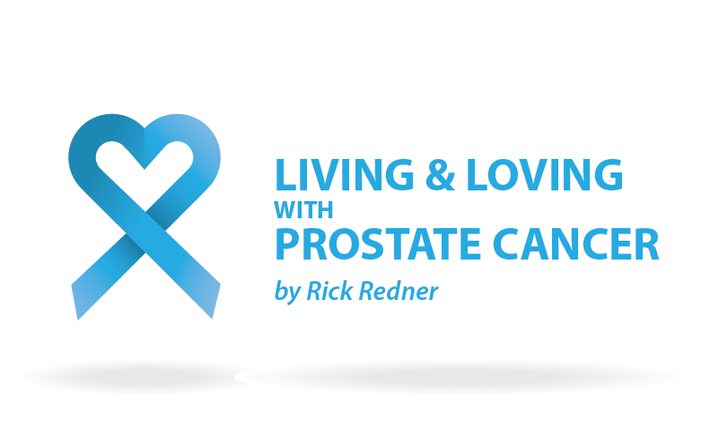When it comes to treating my prostate cancer, I consider myself fortunate, because the cancer was contained within my prostate. The need for radiation, chemotherapy, or hormone treatment was unnecessary.
I learned what I’m about to share from my personal experiences with an adverse reaction I had to a medication to control the overproduction of bile from my liver after my gallbladder surgery.
For one month, a brand medication was managing my symptoms perfectly. On month two, I wanted to reduce my out-of-pocket costs for this prescription. I asked my surgeon to prescribe a generic version of that medication. Within 24 hours after starting the generic medication, my symptoms began.
Here’s the list of issues that completely wore me down within 48 hours:
- Loose, bile-filled stools every 20-30 minutes, around the clock for two consecutive days.
- Rectal pain and bleeding.
- Nausea and vomiting.
- Two sleepless nights.
- Total loss of appetite.
I could not believe how fast I’d deteriorated from good health to feeling as if I was bedridden. If you’re coping with cancer or side effects from treatment, there are three important areas you need to attend to:
Sleep
An adequate amount of sleep is vital to your health, energy level, mood, and sense of well-being. After my prostate surgery, I came home with a catheter. For those two weeks, I knew it would be impossible for me to sleep on my stomach, so I asked my surgeon for a prescription to help me sleep. I also decided to sleep in a recliner. I slept better during those two weeks than I did for the following three months I spent living in diapers.
I had to change diapers at least once a night. I found it impossible to get back to sleep after turning on the lights, washing myself, and getting back into a new diaper. I discovered that I could put a pad in my diaper. When I felt wet I took out the pad and placed it in a plastic bag by my bed. No more lights on, washing myself, or changing my diaper. I fell back to sleep quickly.
Finding ways to get adequate amounts of sleep is vital, and sometimes a challenging aspect of coping with cancer. When I was using the bathroom every 20 minutes, I made the mistake of giving up on the idea that it was possible to sleep. I did my best to stay awake 48 hours with little or no sleep. By day two, I felt as if I’d been ill for months. After a second night without sleep, I began falling asleep for short periods of time while watching TV or reading. The value of naps can’t be overstated.
For a cancer patient, pain or the side effects of treatment, will cause a serious sleep disturbance. Take your sleep disturbance as seriously as you take your cancer. Discuss this issue with your doctor.
Adequate nutrition
This is essential for your body, especially for cancer patients undergoing treatment. I made two mistakes. I stopped eating and drinking. By the end of day one, my wife, who is a nurse, began to see signs of dehydration. She went to the store and came back with Pedialyte. She told me that if I wouldn’t drink Pedialyte and other fluids, she would take me to the emergency room to get rehydrated. Although I had no desire to eat or drink, I managed to drink enough fluids to keep me hydrated.
That didn’t solve the problem with my lack of nutritional intake. Various forms of treating cancer can impact your desire for food, which is essential. If you’ve lost your desire to eat, it’s important to ask for a consultation with a dietitian to learn how to maximize your nutritional intake. I was surprised that I lost seven pounds in a week as a result of fluid loss and inadequate nutritional intake.
Chronic pain
According to the Mayo Clinic, “Not everyone with cancer experiences cancer pain, but one out of three people undergoing cancer treatment does. If you have advanced cancer — cancer that has spread or recurred — your chance of experiencing cancer pain is even higher.” Pain that interferes with your ability to sleep results in a host of secondary problems. It’s important to discuss your experiences with pain with your cancer treatment team. Cancer pain management is a specialty. Don’t hesitate to ask for a referral if your pain level makes it impossible to sleep or if you’re able to think about it during waking hours.
This month, I learned how quickly lack of sleep, inadequate nutrition, and constant pain, can wear you down, drain your energy, and take away your capacity to enjoy living.
If your cancer treatment, or side effects from treatment, have worn you down, evaluate which, if any, of these issues are present. Then take the necessary steps to minimize their impact on your life.
***
Note: Prostate Cancer News Today is strictly a news and information website about the disease. It does not provide medical advice, diagnosis, or treatment. This content is not intended to be a substitute for professional medical advice, diagnosis, or treatment. Always seek the advice of your physician or other qualified health provider with any questions you may have regarding a medical condition. Never disregard professional medical advice or delay in seeking it because of something you have read on this website. The opinions expressed in this column are not those of Prostate Cancer News Today, or its parent company, BioNews Services, and are intended to spark discussion about issues pertaining to prostate cancer.


